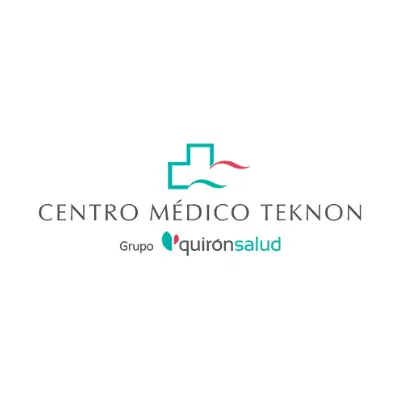6 Egg Freezing Myths Every Woman Should Know About

In the last few decades, remarkable advances have been made in assisted reproductive technology. For those struggling with infertility, assisted reproductive technology can help with successful conception, with newer techniques developed over time.
One such technique is egg freezing, which is now a widely available option for women who want to preserve their fertility. However, this technique remains unknown to the majority of them. The following article discusses egg freezing, what it is, why and how it’s done, the egg freezing process timeline, as well as six important myths that have arisen regarding this cutting-edge technology.
What is Egg Freezing?
Egg freezing refers to oocyte cryopreservation or extracting and storing (freezing) egg cells for later use. In this process, a woman must undergo a medical procedure wherein hormones are injected to stimulate the growth of as many follicles as possible. When the follicles are ready, a clinician performs an ovarian puncture to collect the eggs via vaginal ultrasound under sedation.
Once the eggs have been retrieved, the oocyte maturity is assessed, and if mature, they are frozen and stored in an egg bank. If the woman needs them in the future, the eggs will be “thawed” and then fertilized by a sperm sample from either a partner or a sperm donor. The patient will need to prepare the uterus to receive the embryos created from those eggs.
How Much Time Does Egg Freezing Take?
The hormone injections required to begin the process are typically administered once or twice daily for 8–11 days. A physician will check progress seven to ten times to see how you are doing and how your body is responding to the medication.
When ready, the doctor will complete the process by performing an egg retrieval surgery to retrieve your eggs. Even though the word "surgery" may make people nervous, no stitches or cuts are involved, and the procedure only takes about 15 minutes.
You won't feel anything because you will be experiencing mild anesthesia, also known as "twilight anesthesia". From beginning to end, the egg cryopreservation process takes about two weeks.
How Do You Freeze Your Eggs and What Can You Expect?
Exploring the egg freezing process in more detail, the technique involves four steps:
- Preparation.
- Stimulation and monitoring.
- Retrieval.
- Post-operative period.
Prepping
Before the egg-freezing procedure can start, you will undergo an evaluation by a healthcare specialist.
The evaluation involves a thorough medical history, physical examination, and bloodwork. A vaginal ultrasound may also assess the number of follicles in your ovaries.
The doctor will then develop your stimulation protocol or personalized action plan. They will then administer medications and provide you with an estimated egg-freezing timeline.
Stimulation and Monitoring
Before beginning injections, you may be prescribed a short course of birth control pills, estrogen, and progesterone. These medications are generally given during your periods or after ovulation. In addition, before beginning your fertility injections, you may receive another ultrasound and additional blood work.
After taking these medications, you will require another ultrasound examination and possibly some blood tests. If everything goes as planned, you will begin the injections at that point.
The injections will likely be self-administered at the same time every evening, for 8 to 11 nights straight.
Egg Retrieval
Egg retrieval is performed while sedated. Initially, a transvaginal ultrasound aspiration is performed to locate the follicles using a probe. Subsequently, a guided needle is inserted into a follicle to retrieve the eggs.
Only your fully developed eggs will be vitrified. This process involves rapid freezing in liquid nitrogen (196 degrees below zero Celsius) a few hours after retrieval to lessen the formation of ice crystals on the eggs and increase their survival rates. It is quite common to obtain some immature eggs upon retrieval. Immature oocytes have poor fertilization capacity and can result in abnormal embryonic development or a higher likelihood of abortion. While these are typically discarded, ongoing research into in vitro maturation (IVM), where the collected eggs can be matured outside the body, has shown promise.
Recovery
You might experience cramping after egg retrieval. Also, because your ovaries are still enlarged, you might experience fullness or pressure for several weeks.
Why Freeze Eggs?
Women freeze eggs mainly to preserve their ability to get pregnant later in life. Genetic defects in a woman’s lifelong egg supply tend to increase with age. Therefore, younger women are encouraged to freeze eggs in order to postpone maternity without compromising their chances of healthy offspring.
The reasons for egg freezing can be social (career-related, finding the right partner, and such) or medical (cancer, premature menopause, and other fertility-impacting diseases or risks).
The Costs Involved
Surveys reveal that egg freezing can cost between $3000 and $5000, going up to $10,000 and over in some countries. Additional fees may be charged to store the eggs after collection and for additional consultations.
Does Insurance Cover Egg Freezing?
While most insurance policies do not fully cover egg freezing, it depends on factors such as the inclusions in your policy, the local governing laws, and in certain cases, where a life-saving treatment can cause infertility. Some insurance companies may offer partial coverage for some of the processes involved. In your decision-making, it is important to weigh the benefits and costs of future fertility treatment aside from the out-of-pocket expenses of the egg-freezing procedure (over and above the parts covered by insurance).
Side Effects
Egg preservation procedures can have side effects, mainly because of the hormonal medication and from the ovarian puncture. They include headaches, bloating, abdominal pain, and rare complications such as mild ovarian hyperstimulation syndrome accompanied by lower abdominal pain. Ovarian hyperstimulation syndrome occurs due to an exaggerated response to the hormones injected that causes the ovaries to enlarge and leak fluid into the abdominal cavity.
Age and Egg Freezing
Before we bust some common myths, let's explore egg freezing success rates by age, starting with the basics: the egg count by age.
First things first: how many eggs are women born with? A staggering 6 million! But unfortunately, this number reduces over time.
Due to normal cell death, a woman can lose up to 1,000 eggs per month. The process continues and quickens as you get older. During adolescence, the number goes down to 400,000. So how many eggs does a woman have at 30? Around 100,000-150,000 eggs in ovarian reserve (the total eggs in your ovaries).
The egg quality also degrades as a woman's biological clock ticks along. Even more, your eggs may not be viable if you attempt to freeze them later in life. This is why it is beneficial to freeze your eggs early.
For instance, freezing eggs at 45 will not give you high-quality eggs, as the ovarian environment is poor by that age. Fertility declines after 40, so experts consider this the egg-freezing age limit.
The best age to freeze eggs is in your 20s and early 30s when you have healthier eggs and a higher ovarian reserve, according to the American Society for Reproductive Medicine (ASRM).
In a nutshell, the earlier you start freezing your eggs, the healthier they will be when you're ready to use them. Egg-freezing success rates largely depend upon the woman's age at freezing. And so, freezing eggs at 40 is typically not recommended.
Top 6 Myths on Egg Freezing
Egg freezing is an excellent option for many women; however, some issues should be looked into in more detail.
1. The Procedure Is Not Complicated and Takes No Time (FALSE)
Like most medical treatment procedures, egg freezing requires time. The entire process consumes time for the tests involved, organizing, and the use of self-administered medications and/or hormone injections over several days in order to grow and mature the oocytes. Therefore, multiple trips to the doctor’s office may be required for these procedures. After the stimulation days, which usually take around two weeks, the egg extraction procedure is scheduled. Egg retrieval is similar to a mild surgery, which requires sedation and time off to recover. However, you should be fine within 24 hours.
2. Egg Freezing Is Not Safe (FALSE)
As of 2012, the American Society for Reproductive Medicine (ASRM) and the Society for Assisted Reproductive Technology (SART) announced that egg freezing is no longer an experimental procedure. Since then, social (non-medical), age-related, and medical egg freezing has been rising worldwide.
However, research on egg freezing has made significant progress in recent years. This has improved the success rate of this type of treatment, with developments such as the freezing technique evolving from slow freezing to vitrification. Selecting the right fertility care provider is crucial. Vital factors in choosing a clinic are the depth of expertise in the technique and the pregnancy success rates compared to the age when eggs were frozen.
3. Egg Extraction Affects Reproductive Health Going Forward (FALSE).
It is believed that IVF stimulation causes earlier menopause, with more eggs being retrieved as compared to just one oocyte in natural ovulation. This is untrue since your ovarian reserve will not be diminished by an egg collection. The process stimulates only the follicles you would naturally use in that cycle, with the only difference from a natural cycle being the use of higher levels of hormones.
4. The Quality of Frozen Eggs Degrades Over Time (FALSE)
In terms of quality, it is true that an egg cell from a younger woman is likely to do better than that from an older woman. In fact, the main goal of freezing eggs at a younger age is to maintain quality. However, the process of thawing itself detracts from the viability of the eggs. During thawing, water from melting ice crystals can damage the cell.
Recent advances in technology have given rise to vitrification processes that offer a high success rate comparable to fresh eggs. Vitrification freezes eggs much more rapidly, thereby minimizing the formation of ice crystals. However, the mean survival rate is around 90%, so independent of how young the eggs were, some of them can be lost during the process, although the quality is maintained.
5. Egg Freezing Ensures A Woman Can Have Children Later in Life (FALSE)
The truth is that there is no guarantee of success. It all depends on the ovarian age at the freezing time and the number of eggs frozen.
Ideally, if you freeze your eggs at a younger age - below 35 years and with a minimum of 9 mature eggs - your chances of having a baby after thawing and fertilization are well over 65%.
6. Young Women Should Freeze Their Eggs (FALSE)
Not all women should freeze their eggs, and it is by no means a requirement. Furthermore, a comprehensive medical history must be taken before a doctor can freeze eggs. Egg freezing can only help if one expects to have reproductive issues in the future or if they intend to have children in their late 30s and early 40s. In other words, the oocytes need to be collected in the best possible condition.
Conclusion
Egg freezing offers the opportunity to postpone maternity and maintain the chances of getting pregnant in the future. Therefore, it is important to inform women of the opportunity and access to this technique. Most significantly, women with medical conditions have experienced motherhood thanks to this technology, underlining its value for medical reasons.

Dr. Ramón Aurell is a renowned gynecologist with expertise in Assisted Reproduction and Family Medicine. With extensive training in London as a reproductive medicine researcher, Dr. Ramón Aurell has been a full member of the European Society of Human Reproduction and Embryology (ESHRE) since 1999, the American Society for Reproductive Medicine (ASRM), and the Spanish Society of Gynecology and Obstetrics (SEGO) since 2000. During his career, he has authored over 250 publications.

Teknon’s fertility center in Barcelona, Spain is one of the top fertility centers in Europe and the world. Led by Dr. Ramón Aurell, our center offers the full spectrum of modern fertility treatments including insemination, IVF, and fertility preservation. Dr. Aurell is a leading figure in assisted fertility. Together with his team, he gives couples and single women their best shot at parenthood.
Sources:
Featured Blogs



